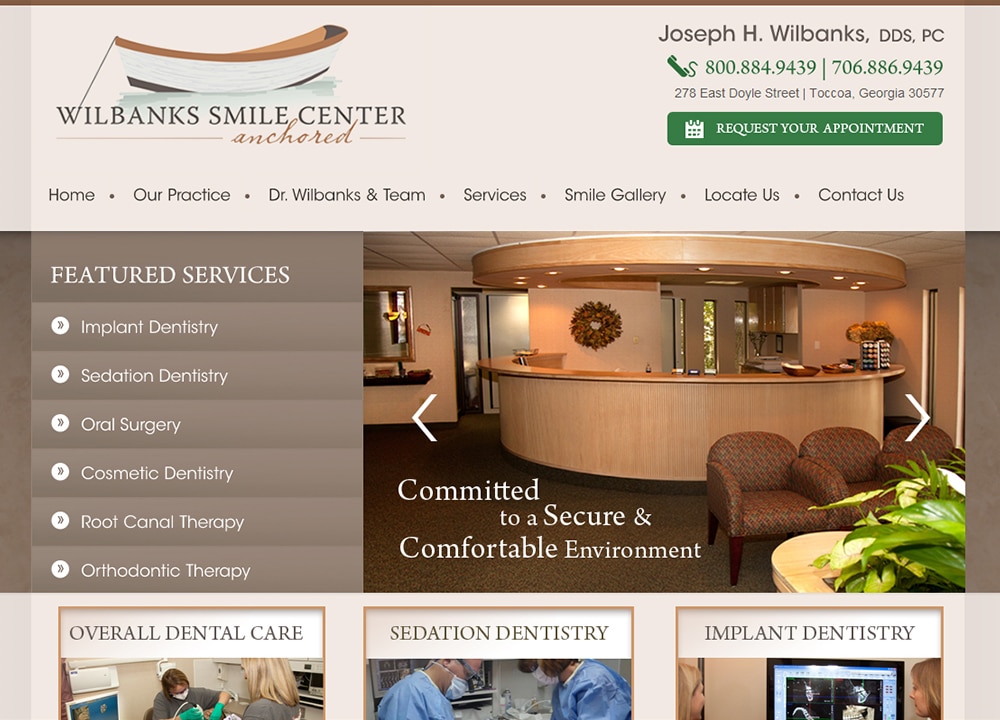 If you keep abreast of developments in the world of search and how it affects your practice, you’ve probably read about the increase in the use of smartphones when it comes to search. If you listen to all the hype you’re tempted to think that people searching for your practice and the procedures you provide are only going to find you on their phones. Along that line, it’s tempting to think that your practice website should be minimalist with both content and design to appeal only to those hitting your site on the small screens of their phones.
If you keep abreast of developments in the world of search and how it affects your practice, you’ve probably read about the increase in the use of smartphones when it comes to search. If you listen to all the hype you’re tempted to think that people searching for your practice and the procedures you provide are only going to find you on their phones. Along that line, it’s tempting to think that your practice website should be minimalist with both content and design to appeal only to those hitting your site on the small screens of their phones.
Not so fast.
Don’t write off those laptops and desktop computers. When it comes to search, while it’s true that mobile search is growing quickly, you need to pay attention to what those searches are searching for, and when they are conducting those searches.
Let’s see how that fits for your practice.
Search goes mobile
The 10-year-anniversary of the release of the first iPhone comes up this June, but it’s been the last four or five years when people really started using their phones for search. And that growth has mushroomed — Google said that mobile search queries passed desktop in 2015. With smartphone sales at around 1.5 billion units for 2016, that’s a ton of search potential.
The question is, when and for what?
When are they searching?
Combine those numbers above with the fact that consumers are spending roughly three hours a day on their smartphones (up from one hour a day five years ago), and you may be tempted to call your MyAdvice rep and say you want to go all in on mobile search. Those trends can make you want to ditch the extensive content and expansive features of your desktop website to make everything more friendly to search. Why not limit photos and pare down procedure details to the bare minimum so that they’re easy to handle on the phone?
But are potential patients actually using their smartphone to search for the provider of a tummy tuck or a dental implant, or are they finding the closest Chinese food joint?
First off, users may be on their phones for three hours a day, but they aren’t using search for much of that time: they’re checking email, texting friends, taking selfies, hitting their Facebook page, listening to music, using maps, and playing games. Research by FlurryMobile, in fact, shows that 90 percent of mobile user time is spent in apps. Hello Spotify, Candy Crush, N.Y. Times, and Amazon.
Plus, the time of day heavily impacts where search comes from. Microsoft and Bing released some data in January on search engagement by device during a typical weekday. That data show users searching on mobile and tablets at night and in the early morning (particularly if using transit for the morning/evening commute). But during the day — from 7 a.m. to 5 p.m. — search is dominated by desktop You know this to be true. You’re supposed to be hard at work, but instead you’re actually looking up symptoms of that pain you’ve had in your knee since you slipped on the ice last week. And you’re doing this research on your desktop or laptop at work.
So, time of day matters for search.
Complex decisions are made on desktop
And what is being searched for matters. Sure, everyone uses his or her smartphone for search. Where is the closest deep-dish pan pizza? How long will it take to get to the golf course from here? Who has the best happy hour near work? Who was the 32nd POTUS?
But when the decisions are complex, users aren’t doing their research on their phones; they’re doing the necessary research on their desktops. In fact, research by eMarketer shows that 80 percent of conversions are still taking place on desktops.
This is probably even higher for procedures at your practice. Researching procedure details, watching video explanations, reading reviews on RealSelf, checking out blogs — that kind of detailed research still is happening on the users’ desktops, and that probably isn’t going to change. It’s just easier to find and review more information with the space and functionality of your desktop.
Booking a hotel room on the fly or buying a new book on Amazon? Whip out your phone and it’s done. Researching the advantages/disadvantages of CoolSculpting versus liposuction? That will usually be done via desktop.
The best of both
So, your patients and potential patients are using their mobile phones more and more for search. But for what YOU are offering, probably not so much. That doesn’t mean a potential patient won’t check your monthly specials or hit your practice’s Facebook page while on their lunch hour. But for real research (and you want educated patients), it still comes on desktop.
The solution is to have a website that is expansive on desktop, but also mobile-friendly. And that’s why you have the team at MyAdvice build and manage your site for you.


